
Overview
DENTAL CROWNS
What are Dental Crowns?
Dental crowns are a type of restoration that completely covers the visible portion of a tooth. They are used to protect teeth that are weakened or damaged, enhance their appearance, or support a dental bridge. Crowns play a vital role in prolonging the life of natural teeth by shielding the enamel and underlying dentin from further decay. Since they also influence the overall aesthetics of a smile, many patients choose custom-made crowns that match the natural color and shape of their teeth. Crowns can be crafted from various materials, including Porcelain-Fused-to-Metal (PFM), all-ceramic porcelain, zirconia, E-Max (lithium disilicate), gold, or resin, depending on both functional and cosmetic needs.
Dental crown treatment is one of the most popular cosmetic dentistry procedures in Turkey. At Akkol Dental, our experienced cosmetic dentists, serving patients at both our Antalya and Denizli branches, will carefully evaluate your condition and recommend the most suitable solution tailored to your needs. If you have any questions or would like to learn more about our services, please don’t hesitate to contact us.

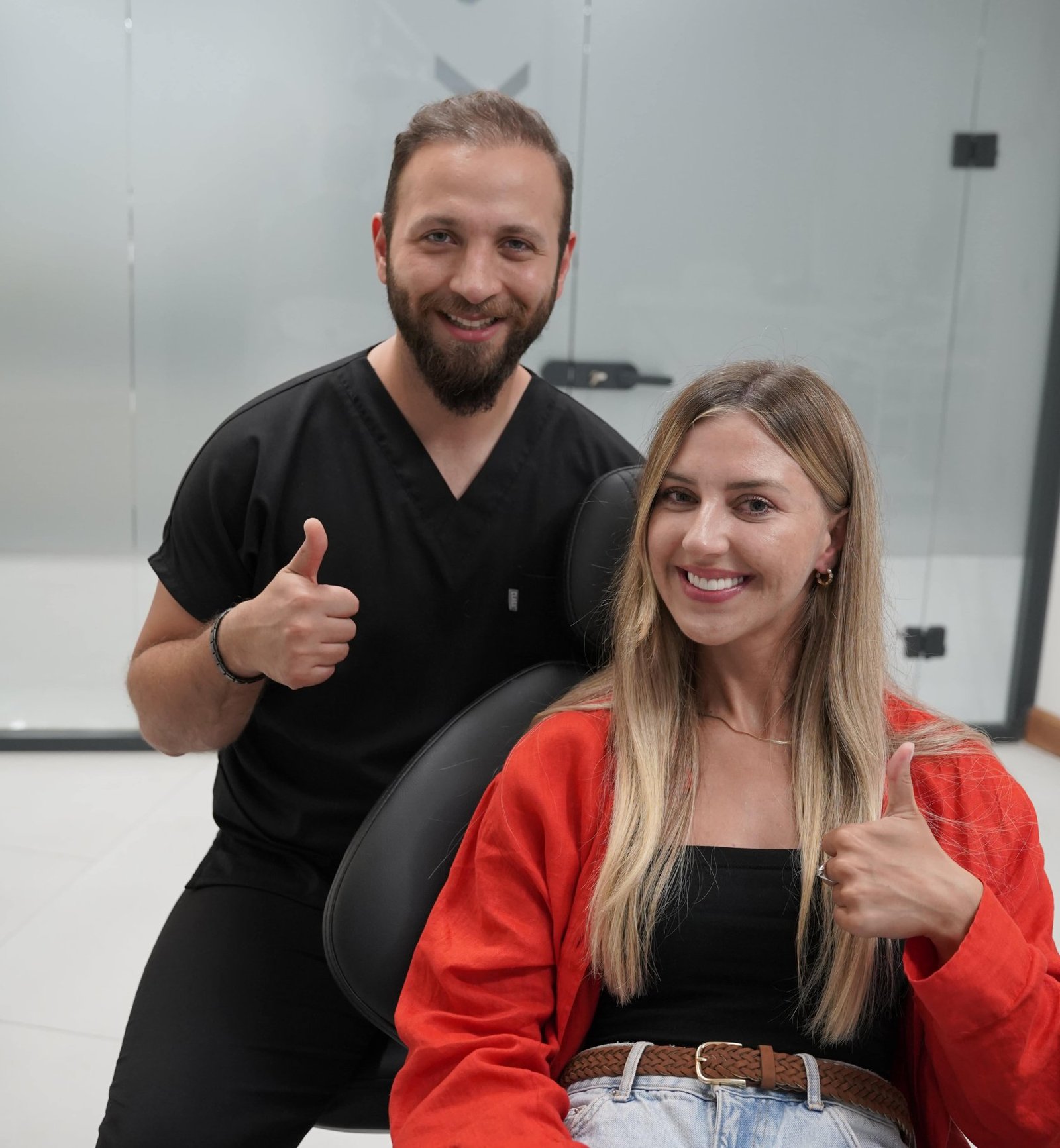
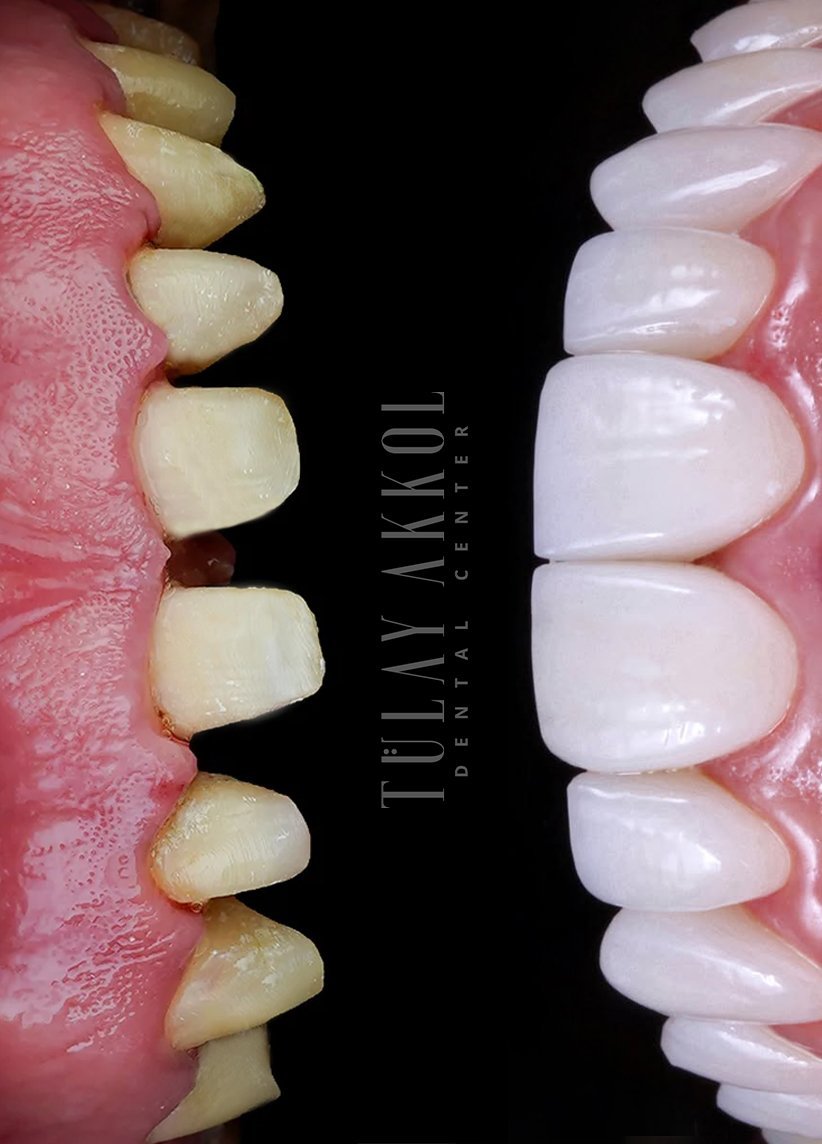
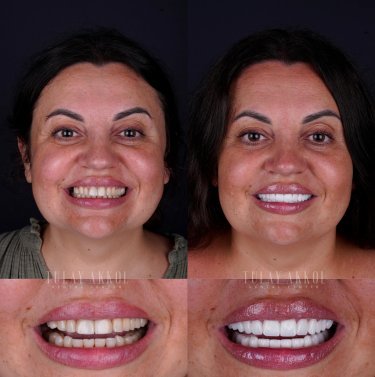
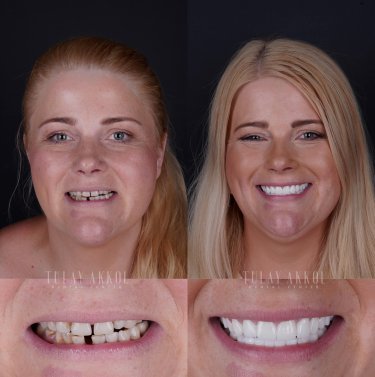
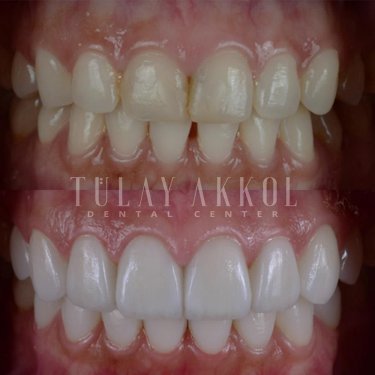
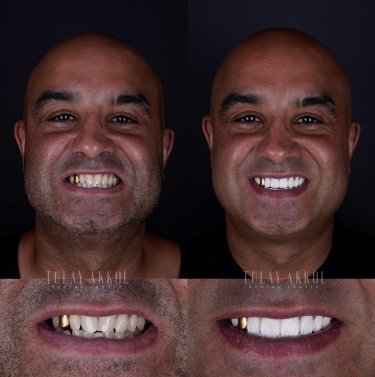
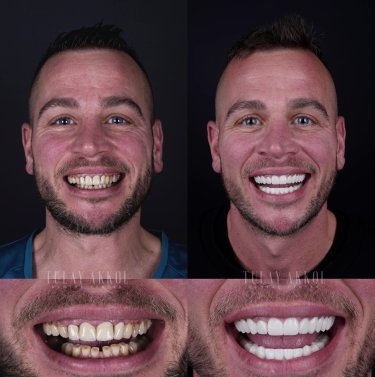
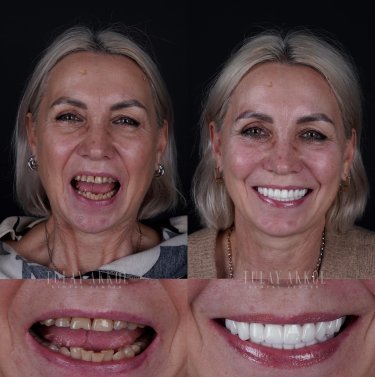















Every Word You Share Matters to Us
Your feedback means the world to us. We're truly grateful for your support, your trust, and every suggestion that helps us become better. Thank you for being part of our journey.
Well I have just visited and had my first phase of treatment,throughout the process ,I have been in contact with Arina who has guided me throughout the process ,with prices,hotels,transfers and any questions I needed answering ,I came off the plane and my transfer was waiting for me to take me to hotel,I stayed at the La Marge,a lovely hotel and the staff couldn’t have done anymore,very friendly and always helpful,day 1 I was picked up in the morning by the transport and met by the lovely Anya who put me at ease straight away,day 1 is exhausting but getting most of it all done is the best way,I left there sore and a bit swollen,but had all the antibiotics,painkillers,mouthwash,ice packs to help,personally I went back straight to sleep and woke up in the morning,it was a lot better,all the staff at Tulay are first class,the cleanliness and professional manner in which they all shown was amazing,i want to thank them all and see you in September for Phase 2
I must say that the whole process is completely digital. First, they take your 3D jaw tomography and explain everything in detail, you get all the info about the process before your treatment. For mouth impressions, they use a 3D scanner which is one of the best ones (believe me I researched a lot about these things while choosing a clinic). They also have their own lab and your crowns are done there, that’s why everything s done super fast! I enjoyed my experience at Akkol Dental
Big shoutout to Anya! As a foreigner, communication is key, and Anya made everything clear and easy, she explained the process from start to finish and I felt safe at this place. Doctor Adnan did my crowns and the result was fantastic!
I was verry happy for this company the staff was sweet and proffesinelt. I pay 1.750€ for 12 crowns take € hvis you for the payment Regards Detlef Otto Denmark
I came to Antalya to get zirconia crowns, and I’m beyond happy with the results! Coordinator Arina was incredibly helpful from start to finish, she explained every step of the process, helped me with transportation, and made sure I was comfortable the entire time. Dr. Rifat is a true artist, he carefully designed my new smile, and my crowns look very natural and beautiful. The procedure was painless, and the clinic’s technology is top-notch. Now I can smile with confidence again! Highly recommended
Highly recommend clinic Tülay Akkol, professional approach of doctors! In love with my new smile. Tnaks to all the doctors and staff!
Where do I start? I would like to extend my gratitude to Arina and all the crew at Tulay Akkol dental centre. Arina was absolutely fantastic throughout the entire process and really excelled in great customer service. From the moment I arrived in Turkey with my family the transfer to the hotel was smooth and stress free. The hotel we stayed in was fantastic and the staff there were lovely. I personally would like to thank the dentist for excellent work and for being very patient and understanding. I can't speak highly off Tulay Akkol and the fantastic treatment I received for my smile makeover. Arina, you are a star and thank you for everything.
I came to the clinic to make my implants and crowns. Everything went really smoothly, the doctors are super professional, the hotel and translator is a top notch Greatly recommend best clinic in Antalya. Looking forward to my next visit thank you
Very pleasant visit. Office atmosphere is professional, staff is very friendly. Definitely recommend.
Had a really great experience with Tulay akkol , would definitely recommend!! Really love my new teeth :)